
Explore the top rated Kenosha drug rehabs with confidence. We've analyzed each of the 25 addiction treatment centers in Kenosha, WI for patient reviews, clinical credentials, transparency, and brand reputation to identify the best rehab programs.
Filter by inpatient, outpatient, detox, health insurance accepted, specialty treatment programs offered, and more to quickly find the perfect drug and alcohol rehab in Kenosha today.Our Methodology
Rehab Score
Our Rehab Score is designed to make it easier for you to find the best treatment centers. We combine overall ratings with recent feedback to create a score that reflects a center's quality right now.
.

| Name / Address / Rating | Description | Treatments / Programs / Payment Options | Review / Contact | Images | |
|---|---|---|---|---|---|
1
Top 10 Rehab in Kenosha
Rehab Score
Our Rehab Score is designed to make it easier for you to find the best treatment centers. We combine overall ratings with recent feedback to create a score that reflects a center's quality right now.
7.74 / 10 | They offer supervised medical treatment to safely manage withdrawal symptoms during detoxification, residential care providing long term support for addiction recovery, as well as flexible outpatient addiction therapy allowing patients to live at home while receiving regular treatment. Additional levels of care offered include relapse prevention, r | Programs Payment Options | Melissa is alright.
James
2 months ago
Awesome ppl who actually care about your well being! I’d recommend them to anyone struggling with addiction issues.
Andrew Beltoya
1 year ago
All of the staff are super friendly and their goal is to help you be successful. The PA listens to you carefully and he will suggest and prescribe medication to aid you to reach your goals. The counselor will work with you to set up a plan for your recovery and listens intently to you to help you reach the goals you have set. She has helped me in numerous ways to overcome anxiety issues that were blocking my path. I believe the whole staff have truly saved my life.
Wayne Chapman
1 year ago
| 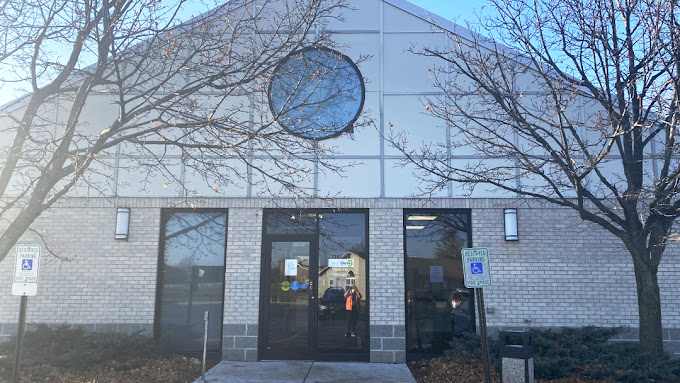
5 5 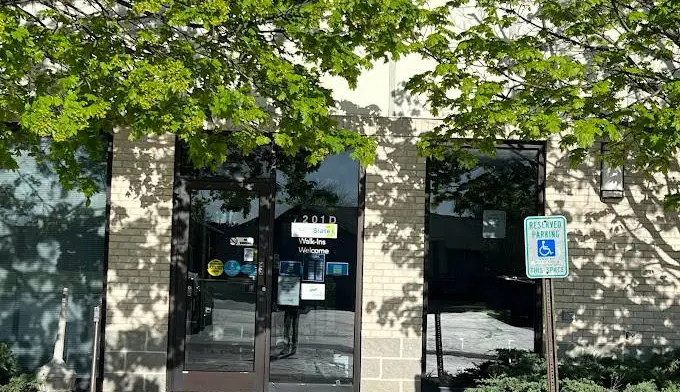
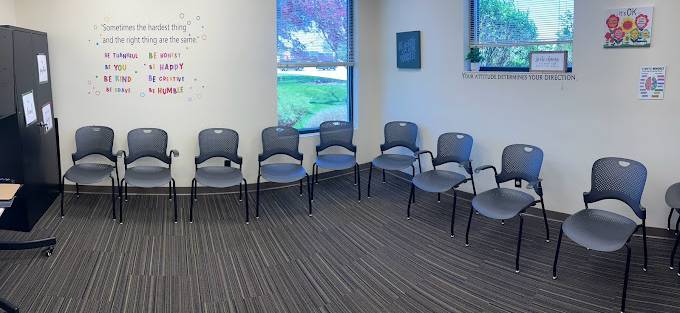
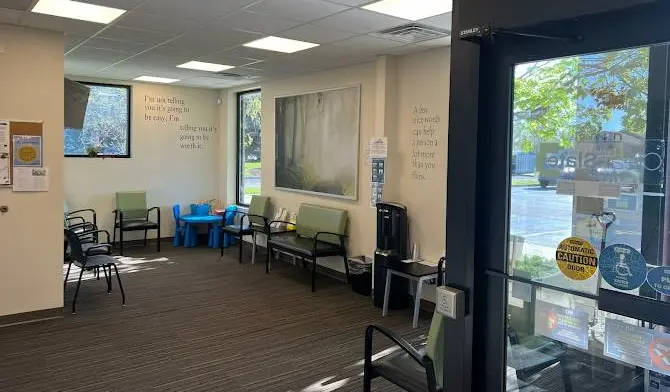
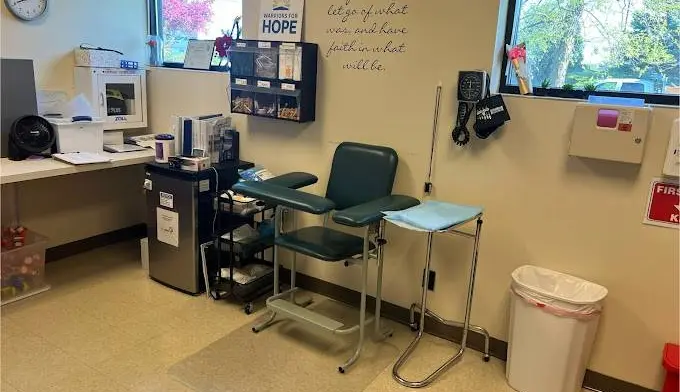
| |
Kenosha, Wisconsin | Kenosha Human Development Services (KHDS) is a nonprofit organization that provides a range of mental health, primary care, and social services to members of the community in Kenosha, Wisconsin. The organization has been in operation for over 50 years and also works with local and state government agencies to create a safety net for vulnerable popu | Treatments Programs Payment Options | Thanks to khds my life is becoming so simple and stress free. Yesenia Olivo deserves a 5 star rating herself for the hard work she puts in with me to achieve my goals! KHDS is simply a blessing only created by God.
Yesenia Olivo goes Above and beyond to make sure I am happy, healthy, and successful. Khds is such a an amazing place.
Troy Shesler
3 months ago
Many services to help the underserved. Benefits for children with disabilities. Mental health services for adults. Foster care program. 24 hour crisis line.
Lauri Trapp
8 months ago
Out of public view location... but VERY nice facility!
Phil Kenner
1 year ago
| 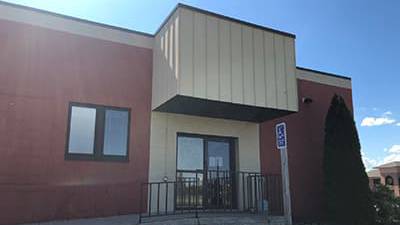
| |
Kenosha, Wisconsin | Vivent Health grants people living with HIV a second chance at living a fulfilling and meaningful life. They have facilities spread across multiple locations in Wisconsin including this one in Kenosha. For more than 40 years, they’ve delivered quality and personalized care including testing and prevention, counseling and wraparound services that | Treatments Programs Payment Options | Everyone I encountered at this facility is very professional,caring and work well together as a team should
They treat you like family
When I say Everyone I mean Everyone from the front desk to the specialist all have class!
Joslynn Burke
3 years ago
before and most amazingly during the covid endemic these people actually will help and care, as opposed to giving innane excuses why I should go to great efforts beyond my ability to so that they can sit home doing no work while their dog barks. Phone system sucks though.
jason long
3 years ago
The service is really good! People are attentive and they give you the resources you need, they treat you with respect and honesty. Just on one occasion, I felt discriminated by another person who as assisting the center. I just feel they should filter people who want to visit the center
6 years ago
| ||
Banyan HeartlandAd This is an ad and Banyan Heartland is a paid advertiser. Paid advertisers may be listed first in search results. This ad may contain content provided by the advertiser. Rehab.com does not verify ad content or any reviews that are displayed. Learn More Gilman, Illinois | Banyan Treatment Centers Gilman is a private drug rehab center specializing in treating drug and alcohol abuse in Watseka, Illinois. This addiction treatment center provides individuals with fully customized and uniquely comprehensive levels of care to help with recovery. Banyan Treatment Centers Gilman prides itself in giving clients the drug an | Treatments Programs Payment Options | View Website (855) 913-1797 | Banyan Heartland has no reviews yet. Leave a review.
| 
6 6 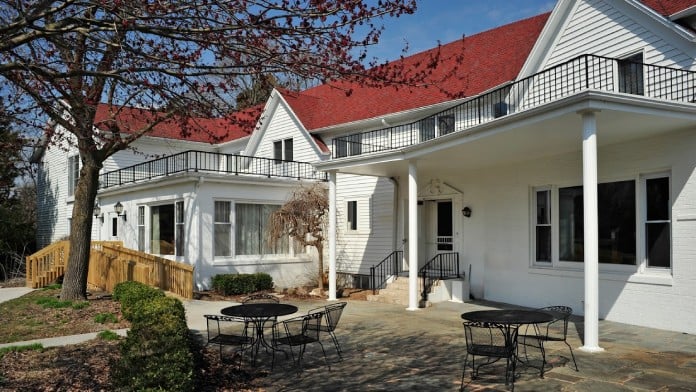
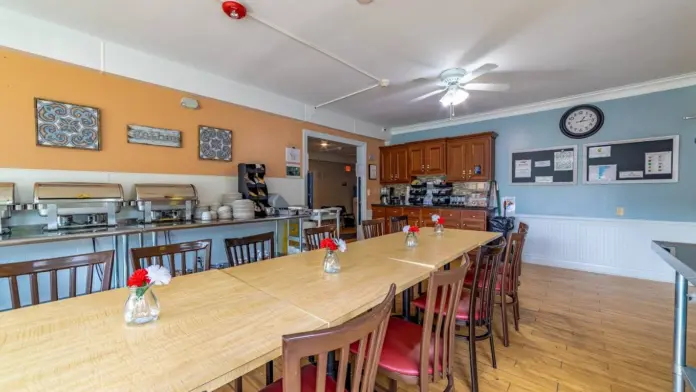
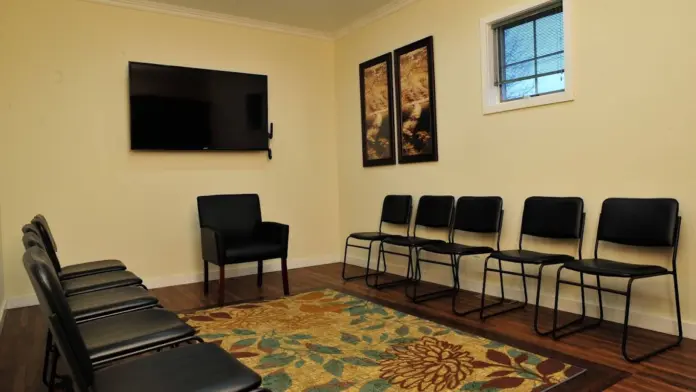

|
Kenosha, Wisconsin | Adults living in the Wisconsin city of Kenosha can visit the Captain James A Lovell Federal Health Care Center Kenosha VA Clinic. It’s an outpatient clinic providing primary health care and specialty services like mental health and women’s care for Veterans and their families. They also help TRICARE beneficiaries who have been diagnosed with a | Treatments Programs Payment Options | Best V.A. Clinic connected to best V.A. hospital anywhere!
Cheryl Grey
6 years ago
| 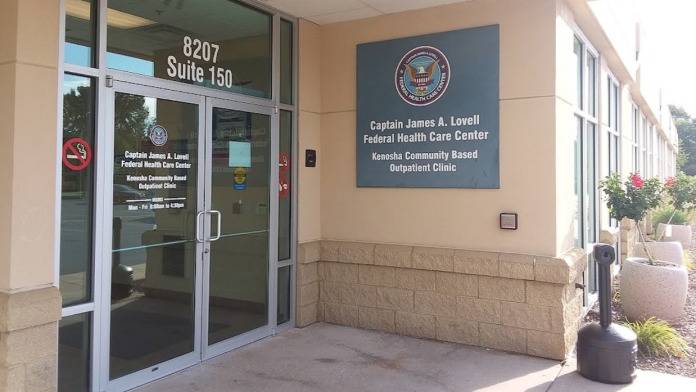
2 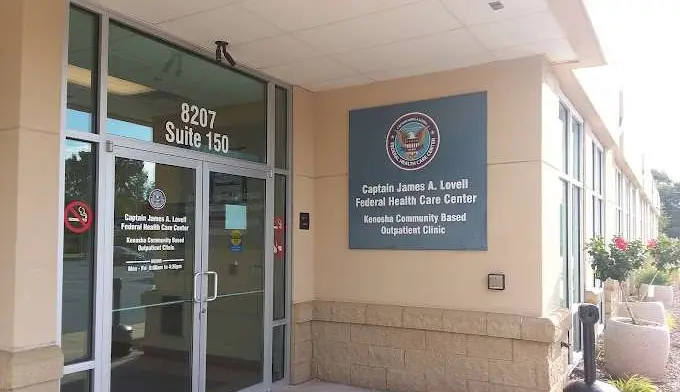
| |
Kenosha, Wisconsin | Aalto Enhancement Center in Kenosha, Wisconsin provides outpatient treatment for substance use disorder. We like their calm, inclusive environment and their compassionate, supportive therapists. You can use Medicaid, Medicare, TRICARE, private insurance, or other state and county programs. If you’re uninsured, a sliding scale will be offered to | Treatments Programs Payment Options | Brittany did THE BEST deep tissue massage for me. She was very professional and the massage was very relaxing.
Bri
4 weeks ago
I love getting my massages at Allto! I have been to all of the ladies and they are all great!
Lisa Benn
2 months ago
⭐⭐⭐⭐⭐
I’ve been a loyal customer at Aalto Enhancement Center for decades, and it’s always been an exceptional experience. The staff is incredibly professional, and the atmosphere is always welcoming and soothing. I frequently book massages and have had the pleasure of working with many massage therapists there but mostly Melissa, Brittany, and Delaney – each of them brings their unique touch, but all provide outstanding service. My husband and I also enjoy regular couples massages, and it’s the perfect way for us to relax and unwind together. Every visit leaves us feeling relaxed, refreshed, and
rejuvenated. I highly recommend Aalto to anyone in need of a top-tier massage experience. Truly a five-star gem!
Rachel Langer
10 months ago
| 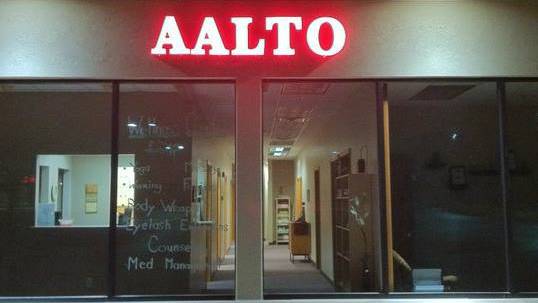
| |
Kenosha, Wisconsin | InterConnections, located in Kenosha, Wisconsin is a private alcohol and drug rehab that offers treatment for a variety of substance abuse addictions including alcoholism, co-occurring mental health disorders, and opiate addiction. They offer flexible outpatient addiction therapy allowing patients to live at home while receiving regular treatment. | Treatments Programs Payment Options | Everyone I've delt with at InterConnections has been great. The gentleman at the front desk is very helpful and knowledgeable about insurance.
Kristopher Peters
1 year ago
They really understood veterans issues.
Bob Peterson
1 year ago
We really enjoyed working with the staff at Inter Connections, S.C.
Words do not describe how amazing the people are here. They are Highly professional and we would recommend them to anyone.
BellMedEx Billing
4 years ago
| 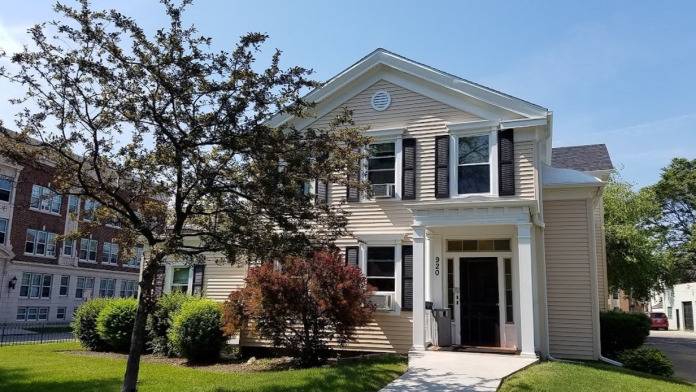
| |
Top Wisconsin Cities | |||||
Kenosha, Wisconsin | Oakwood Clinical Associates is a mental health and substance use treatment center in Kenosha, Wisconsin, that provides client centered care to adults and adolescents. They offer a wide range of services designed to support individuals and families through challenging moments. Insurance is accepted including Medicaid. Therapy and Treatment Model Ind | Treatments Payment Options | My therapist was fantastic and helped me quite a bit. Unfortunately she only took Medicaid so I had to switch once I started Medicare. My current therapist is great, mind you. I just had seen the previous therapist for years and that built a lot of trust that is hard to come by. I feel like the office staff is really on top of things and always called me when there was an issue. Good place in my opinion.
Whirrling Menace
1 year ago
Started out with Nyles, very nice but due to some of my issues it was hard to talk to him. Then started seeing Kris, and still see her. Really like her, feel more relaxed talking about my issues. Doing much better with my depression, not as bad. Anxiety is still an issue we're working on.
Been seeing Kris Jerry for 3 years. Come June 1,2023, will be my last time seeing her as she is moving on to doing counseling at her own place in IL.,. June 8th, I will be going back to seeing Nyles again.
Cindy
Cindy Hoch
2 years ago
Office staff is great and Jennifer is an amazing therapist! ☺
Erica Molinaro
4 years ago
| 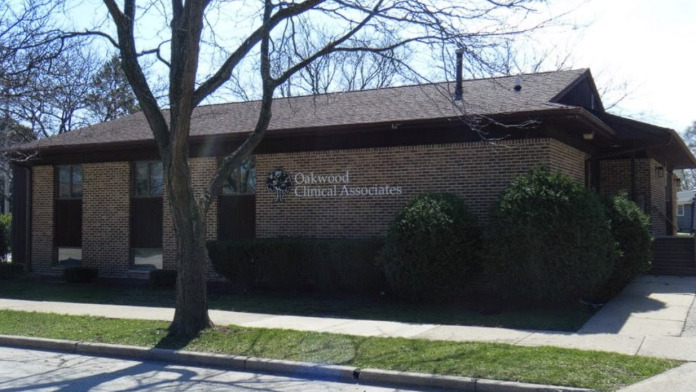
2 
| |
Kenosha, Wisconsin | Kenosha Alano Club, located in Kenosha, Wisconsin is a non-profit alcohol and drug rehab that offers treatment for a variety of substance abuse addictions including alcoholism and opiate addiction. They offer flexible outpatient addiction therapy allowing patients to live at home while receiving regular treatment. Additional levels of care offered | Treatments Programs Payment Options | Amazing fellowship! Great beginnings to a new life! Recovery IS possible!
Britnay
2 years ago
Come to your 1st day of your life.
Victor Perez
6 years ago
Excellent place for a meeting.
David J Serrano
8 years ago
| ||
Kenosha, Wisconsin | Southport Lighthouse Recovery Club, located in Kenosha, Wisconsin is a non-profit alcohol and drug rehab that offers treatment for a variety of substance abuse addictions including alcoholism and opiate addiction. They offer flexible outpatient addiction therapy allowing patients to live at home while receiving regular treatment. Additional levels | Treatments Programs | SAVED Brother😊
Dennis Knippel
1 year ago
A great community is recovery!
Chris Baratki
3 years ago
Great place if you are checking out recovery groups! I really like the meetings and people in it! Saturday at 6 pm is one of my favs!! Baddass vibez!!💚🔷️💚
Kenny Zzzz
3 years ago
| ||
Boca Recovery Center – Indiana Drug and Alcohol RehabAd This is an ad and Boca Recovery Center – Indiana Drug and Alcohol Rehab is a paid advertiser. Paid advertisers may be listed first in search results. This ad may contain content provided by the advertiser. Rehab.com does not verify ad content or any reviews that are displayed. Learn More Huntington, Indiana | Boca Recovery Center is a luxury drug treatment facility in Huntington, Indiana. The company started in Florida in 2016 and quickly moved into three additional locations to address substance disorders and co-occurring mental health issues. They accept most major insurances and will check your coverage options days before you enter treatment. Howeve | Treatments Programs Payment Options | View Website (260) 201-2661 | Boca Recovery Center – Indiana Drug and Alcohol Rehab has no reviews yet. Leave a review.
| 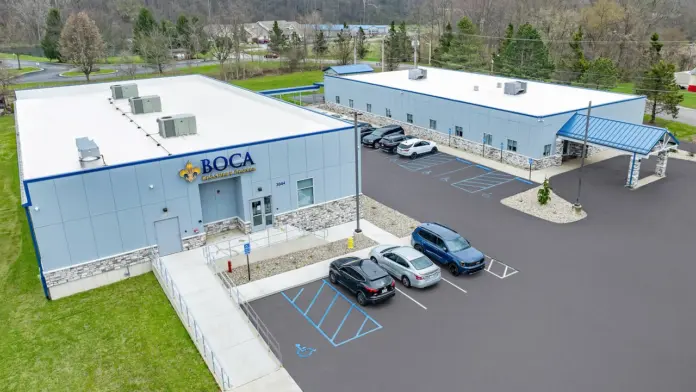
24 24 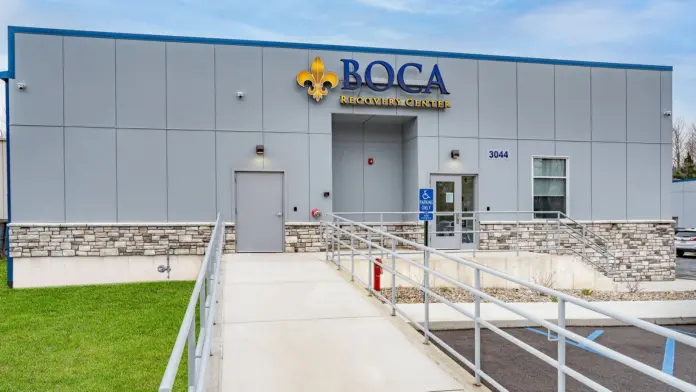
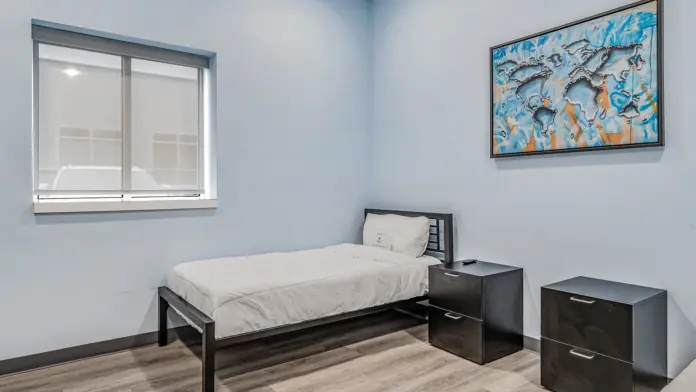
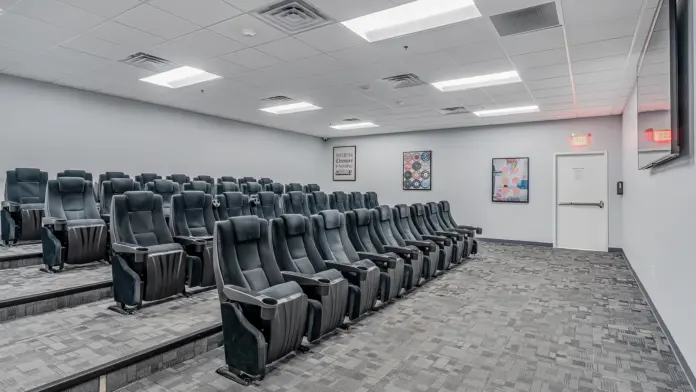
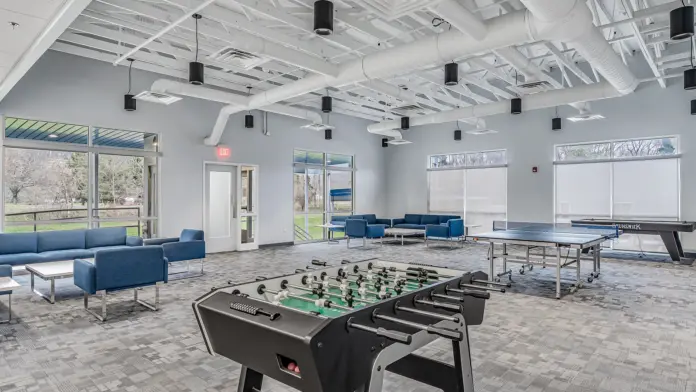
|
Kenosha, Wisconsin | DanaCare, located in Kenosha, Wisconsin is a alcohol and drug rehab that offers treatment for a variety of substance abuse addictions including opiate addiction and alcoholism. They offer flexible outpatient addiction therapy allowing patients to live at home while receiving regular treatment. | Treatments | Dana is amazing. She made me feel seen and heard. She helped me come up with a plan to reach my goals and kept me on track. I reached my goal in 3 months! Truly a blessing I found her.
Connie Burroughs
4 weeks ago
Dana care worked with my schedule to help me , instead of requiring me to show up several times a week like many other programs . My life has entirely turned around, the journey has changed , and im very thankful for you guys. Keep rocking it !
Autumn Serbedzija
2 months ago
She saved my life. Literally. Best place you could go to. She truly gives individualized care like NO OTHER!!! You will not find a better place.
T A
1 year ago
| ||
Kenosha, Wisconsin | Compassionate Care Counseling in Kenosha, Wisconsin offered outpatient substance use treatment for both young adults and adults. They’re closed now. Gender specific programs were available for men and women which helped create a more comfortable environment that encouraged sharing and addressed unique challenges that each gender may face during r | Treatments Programs Payment Options | Compassionate Care Counseling has no reviews yet. Leave a review.
| ||
Kenosha, Wisconsin | Outcasts Medical Center, located in Kenosha, Wisconsin is a private alcohol and drug rehab that offers treatment for a variety of substance abuse addictions including alcoholism, co-occurring mental health disorders, and opiate addiction. Specialty rehab programs at Outcasts Medical Center include tailored care focusing on women's specific needs | Treatments Programs | Outcasts Medical Center has no reviews yet. Leave a review.
| ||
Kenosha, Wisconsin | Psychiatric and Psychotherapy Clinic – Kenosha, Wisconsin is a place where you can receive support for addiction and mental health with dignity and respect. They treat both children and adults and make it possible for your whole family to receive help in one place. What we notice most about them is how they provide care for unique concerns th | Treatments Programs Payment Options | Psychiatric and Psychotherapy Clinic has no reviews yet. Leave a review.
| ||
Kenosha, Wisconsin | Genesis Behavioral Health - Kenosha in Kenosha, Wisconsin, is a mental health and drug rehab facility offering levels of care that include outpatient, residential and halfway house programs, as well as transitional living programs. Services are available for young adults, men, women and elderly individuals of all ethnicities and walks of life. Gene | Treatments Programs Payment Options | Genesis Behavioral Services Inc has no reviews yet. Leave a review.
| ||
Kenosha, Wisconsin | Allen Carr’s Easyway to Stop Smoking, located in Kenosha, Wisconsin is a alcohol and drug rehab that offers treatment for a variety of substance abuse addictions. They offer flexible outpatient addiction therapy allowing patients to live at home while receiving regular treatment. | Treatments Programs Payment Options | Allen Carr’s Easyway to Stop Smoking has no reviews yet. Leave a review.
| ||
Avenues Recovery Center at IndianapolisAd This is an ad and Avenues Recovery Center at Indianapolis is a paid advertiser. Paid advertisers may be listed first in search results. This ad may contain content provided by the advertiser. Rehab.com does not verify ad content or any reviews that are displayed. Learn More Indianapolis, Indiana | Avenues Recovery Center at Indianapolis is a 144 – bed detox and residential rehab facility offering drug and alcohol addiction treatment. Located in the heart of Indianapolis, Avenues offers an evidence-based clinical program, comprehensive medical care, and custom MAT options – consistently yielding highly effective results. Its multidisc | Treatments Programs Payment Options | View Website (463) 221-4959 | Avenues Recovery Center at Indianapolis has no reviews yet. Leave a review.
| 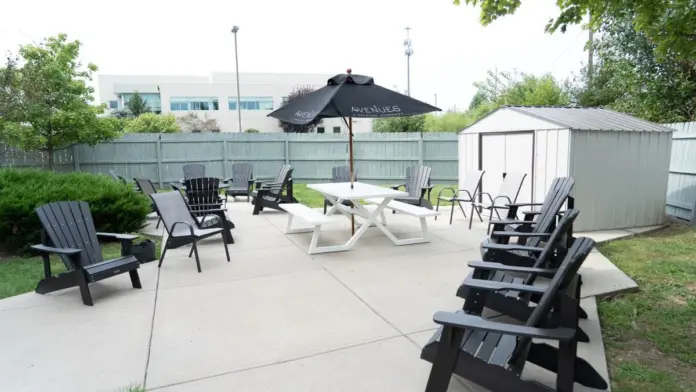
6 6 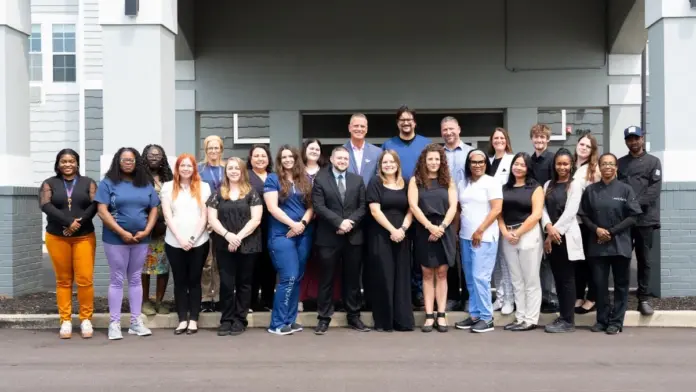
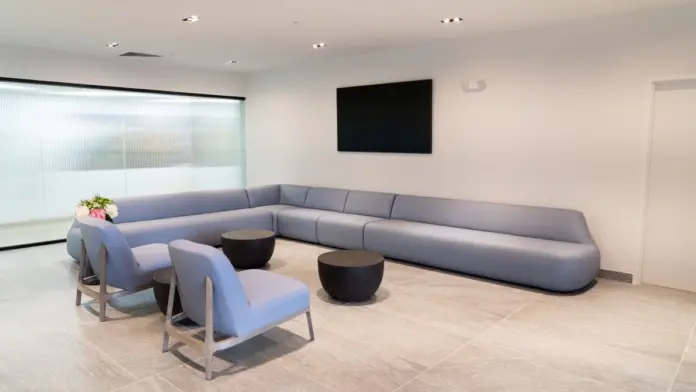
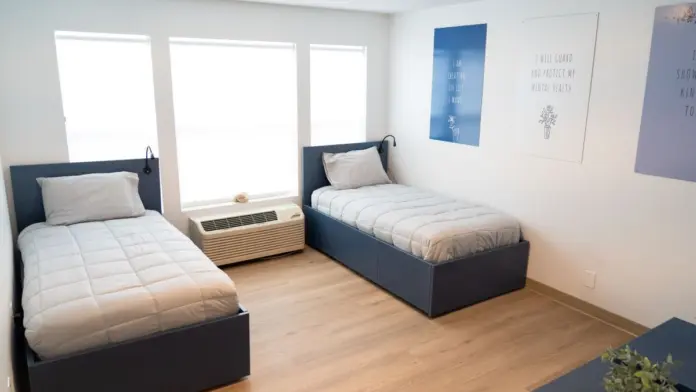
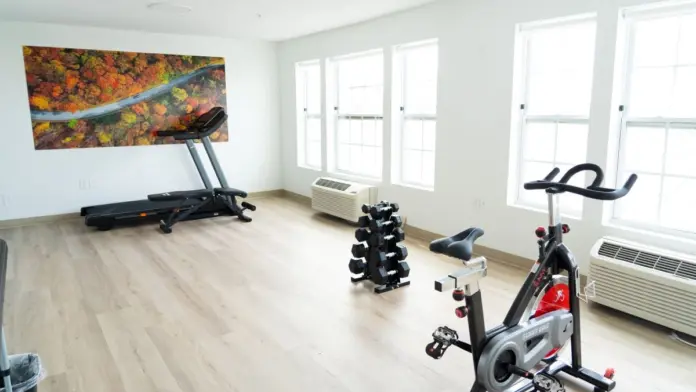
|
North Chicago, Illinois | Captain James A. Lovell Federal Health Care Center, located in North Chicago, Illinois, provides comprehensive mental and behavioral health care for military personnel, veterans, and their families. Services include telehealth care, medically supervised detox, inpatient treatment, intensive outpatient programs (IOP), general outpatient programs (OP | Treatments Programs Payment Options | I mean it’s a federal hospital what do you expect. It’s okay. Some nurses are the kindest people ever. Some are the complete opposite. Here they reach equilibrium. Just an okay experience.
ron
3 weeks ago
The surgical team here is amazing! I was surprised how professional jovial and funny they were at 6:00 in the morning. Thank you Mel for all your help.
David Schermerhorn
4 weeks ago
I had a kidney transplant at Hines. But I use Lovell for my kidney doctor. Dr Yoon is fantastic. Very responsive.
Gary Gushulak
3 months ago
| 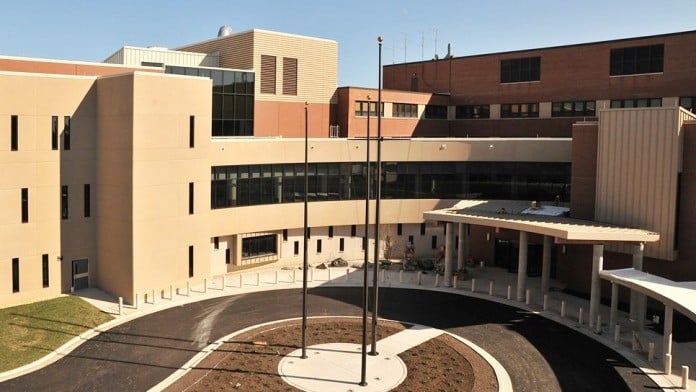
| |
Lake Villa, Illinois | The Gateway Foundation in Lake Villa, Illinois, is a 16 bed residential facility offering round the clock medical care and personalized addiction rehabilitation in a lakeside setting. Accepting both commercial insurance and Medicaid, their medical detox and medication assisted treatment (MAT) programs are certified by LegitScript and accredited by | Treatments Programs Payment Options | I came here misguided in 2017
Mitch my mentor taught me valuable lessons and I fell back into my ways when I came out but never forgot what I was taught. Used to wipe windows on street corners , I’ve purchased my 7th car today
2 years clean & I work for the governor now. You can change if you want to , but this place was the reason I didn’t end up like the rest of my friends fortunately. Thank you gateway, figure I leave a real honest review with no sugar coating.
Purple Swag
3 months ago
Gateway Foundation changed my life. Dont let these bad reviews deter you from changing your life. The 1 star reviews are losers who never stood a chance anyway. This place will get you clean if you check your baggage at the door.
No Way
4 months ago
I've been in treatment a few times, however the excitement I had this last time, literally the last time as claint. They say recovery is fun, now I understand
Anthony Fleming
7 months ago
| 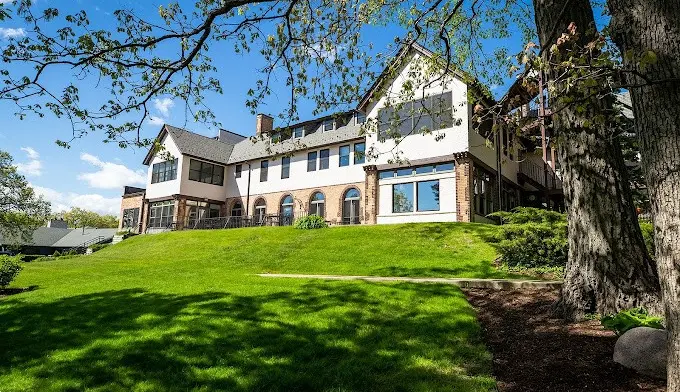
3 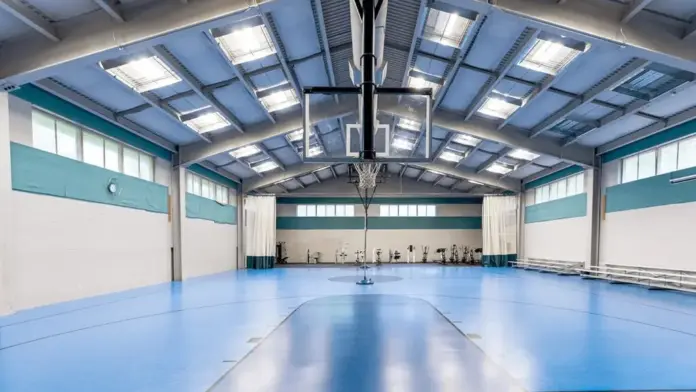
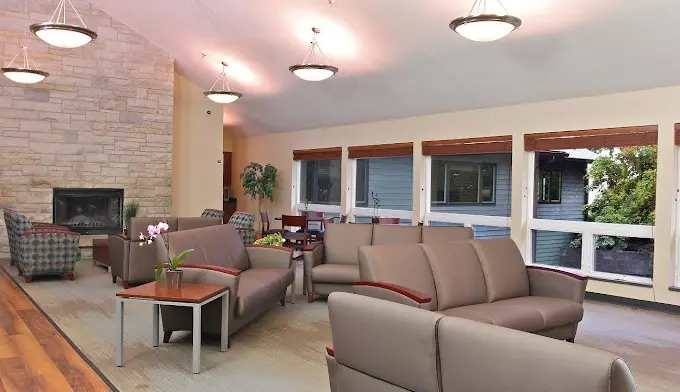
| |
North Chicago, Illinois | Nicasa is a non-profit organization dedicated to help individuals struggling with mental health/substance abuse and gambling disorders. All their services are client-focused and evidence-based and are based on the Matrix model. Nicasa is located at North Chicago, Illinois. Nicasa also offer DUI Services, Illinois laws required individuals arrested | Treatments Programs Payment Options | This place is good, and it's worth being part of their program. They will take their time to work with you and help you with everything you need. I will forever be thankful for all the people that supported me here.
7 years ago
Hi, My name is Brittany woodruff, my personal experience with Nicasa has been a true blessing. I came to Nicasa in 2022, me and my children were homeless. I had just gave birth to a Beautiful baby girl!!! In the time of our homelessness, the shelter we were staying at refered me to them!! I called them and made appointment. When the time came I went to the appointment and they were so sweet, understanding, and very resourceful!!!. I was amazed, and happy!!! First off, it's a blessing itself to have a facility FREE OF CHARGE!!! They help step by step, to get your life in order and back together again!!!♥️ Nicasa has truly been a blessing to us, and always will be!!! We are still with them still this day!!! Ms. Cindy is 1 of the few and rare woman I have ever met. This woman was a Huge BLESSING!!!! THE THINGS SHE DID FOR ME WAS RARE!!! SHE WOULD GO OUT IF HER WAY, TO MAKE SURE I WAS MAKING IT TO MY APPOINTMENTS, AND ALSO A SUPPORT TO ME EMOTIONALLY AND MENTALLY!!! I WILL NEVER FORGET HER, NOR SAY "NO" IN THE TIME OF NEED FOR HER WHEN SHE CALLS ME TO HELP WITH THE COMPANY.. NICASA THANK YOU SO MUCH!! FOR YOUR SUPPORT AND SERVICES!!! GOD BLESS!!!⭐⭐⭐⭐⭐
Brittany Woodruff
3 months ago
I am so grateful for Nicasa and the incredible support I received from their team. With the guidance of my caseworker, Ms. Darlene, I was able to make real progress in my life. She not only encouraged me to continue my education, but also helped me get my driver’s license and supported me through the process of having my background expunged. Because of her kindness, professionalism, and dedication, I have been able to put my life back together in ways I never thought possible.
I also want to recognize her supervisor, Ms. Sindey, whose support and understanding made a huge difference. Both of them carry a genuine heart for the community and give their time, energy, and compassion to help families across Lake County.
What makes Nicasa so special is that they are not just another organization—they truly care. They spend countless hours serving people and making a positive impact. I have referred many friends and family to them, and they too have been blessed by the hard work and dedication of Ms. Darlene, Ms. Sindey, and the Nicasa team.
Thank you, Nicasa, for helping me rebuild my life and for all you continue to do for our community.
Robert Bettis
3 months ago
| 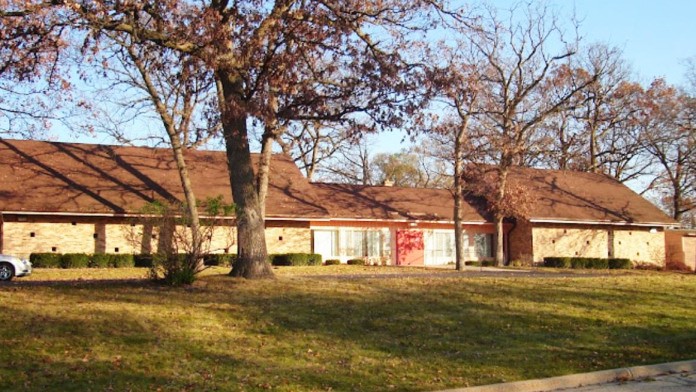
| |
Union Grove, Wisconsin | Milwaukee VA Medical Center – Union Grove Community Outpatient Clinic in Union Grove, Wisconsin, offers a range of medical services, including mental health, behavioral health and drug rehab support for veterans of all ages, ethnicities and walks of life, including LGBTQ+ individuals. Levels of care include outpatient treatment, inpatient treatme | Treatments Programs Payment Options | I have always received excellent care from my medical care team. Thank you for being willing to help me every single time. You are the best.
6 years ago
Friendly staff and helpful too. The staff were super nice and explained things clearly. Oohrah union Grove.
Rosa Baez
1 year ago
Great!
Scott “Rooster” Sloan
1 year ago
| 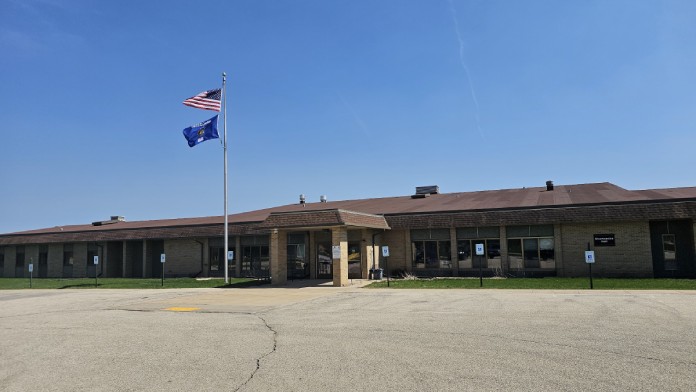
3 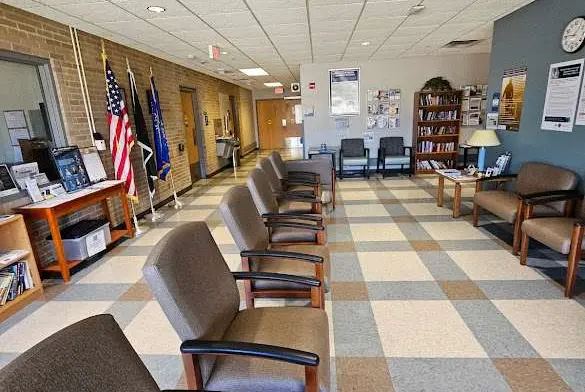
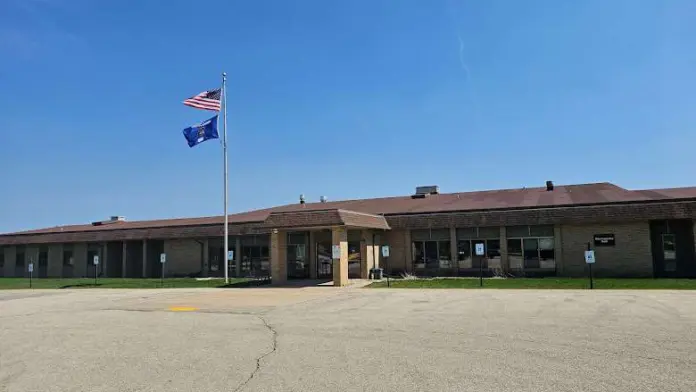
| |
Fox Lake, Illinois | Western Lake Counseling and DUI Programs, located in Fox Lake, Illinois is a private alcohol and drug rehab that offers treatment for a variety of substance abuse addictions including alcoholism and opiate addiction. They offer flexible outpatient addiction therapy allowing patients to live at home while receiving regular treatment. Additional leve | Treatments Programs Payment Options | I've been back there a couple times and it's a really wonderful place they have the willingness to work with you and help you where you're at in life blessings!🫶🙏🌻
Lisa Fay
2 weeks ago
Mather's Recovery has been the best place I have been to concerning my OUD and other mental health diagnoses. I am a recovering IV heroin addict for 10 years. My sobriety began 8/5/2021. I was at several MAT clinics to be prescribed methadone that I ended up abusing alongside heroin to supplement my habit for those 10 years. I had a very rough decade as I am sure many of us have while using. I overdosed more times than I could count and was in and out of jail for drugs and theft. I finally got sick and tired of using especially when fentanyl hit the streets along with unknown substances being passed off as heroin. I began detoxing for 6 months to get off of methadone and switch to suboxone which I did albeit I went into PAWS for using fentanyl before my first strip. This was before Mather's at my PCP's office more than 50 miles away. My PCP was extremely cold, impatient and quick to invalidate my feelings and experiences. That's when my wife found Mather's Recovery in Fox Lake. From the moment I walked in I had felt seen. The front desk women are so incredibly kind! It also doesn't look like your typical "clinic " which feels really good. I don't have to worry about hearing people talk about using still or offering me their take homes/drugs. Lorin was assigned to me and she is hands down the most down to earth, genuine person I have ever met during this journey. She makes me feel seen, validated and treats me like an actual human being. I switched from Suboxone to Brixadi and it was the best thing I have done for my sobriety so far. The nurses are so funny and I always leave feeling like I just visited caring friends. Lorin also listened to my struggles with mental health and did not hesitate prescribing me medication that other doctors did not trust me with even though I was sober and those meds were so necessary for my continued stability. I did not have to feel like I had to keep my struggles a secret out of fear of looking like a drug seeker. I have also been struggling with my severe unmanaged ADHD that was proving to be a huge obstacle in my life. Lorin heard my story and changed my life. I have been able to manage my symptoms and get a grip on life which once proved to once be an impossible task. It changed the way my employers and coworkers treat me. Most importantly it saved my 15 year relationship with my wife. I was on the brink of a separation with her. Now she and I have been more understanding of each other and slowly growing closer again. This is my testimony of how Mather's Recovery helped me regain control of my life. I couldn't be more thankful for everyone there. I hope someone reads this and decides to give this wonderful place a chance.
Lonnie
Lonnie Smith
3 weeks ago
My visit was very pleasant
MP K
3 weeks ago
| 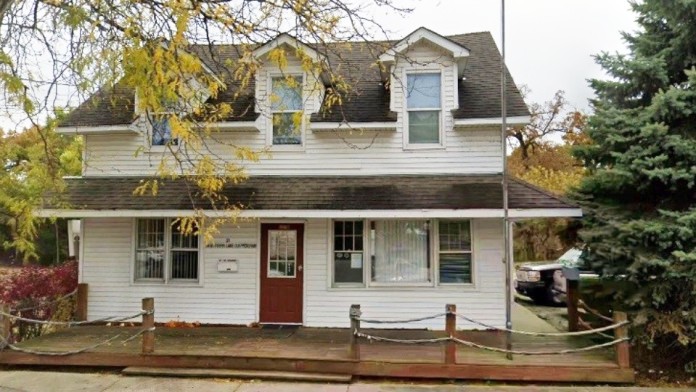
| |
Racine, Wisconsin | Ascension All Saints Hospital’s Wisconsin Avenue Campus in Racine provides behavioral health and addiction treatment services to adults. It’s near the public library and zoo and isn’t too far from the Wisconsin shoreline. Various commercial insurance plans are accepted, including Medicaid and Medicare, along with self-pay. Financial assistanc | Treatments Programs Payment Options | My nurse assistant and the doctor did a wonderful job answered all the questions I need to answer the time did a full exam
Lisa Holland
4 months ago
Staff were very helpful and courteous also competent.listened to me and helped me make informed decisions.
Keith Mcatee
5 months ago
Always amazing
jose tovar
5 months ago
| 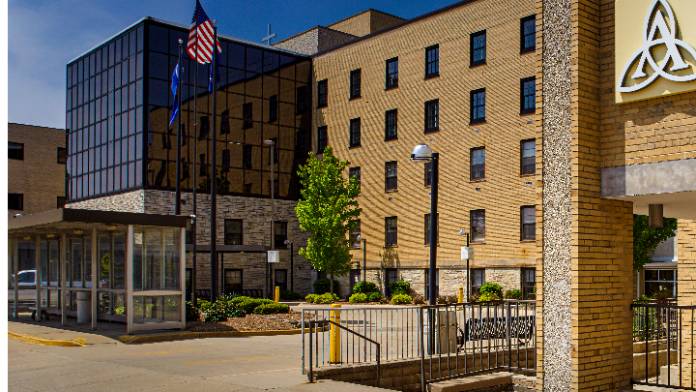
| |
Sandstone Care NapervilleAd This is an ad and Sandstone Care Naperville is a paid advertiser. Paid advertisers may be listed first in search results. This ad may contain content provided by the advertiser. Rehab.com does not verify ad content or any reviews that are displayed. Learn More Darien, Illinois | At Sandstone Care Naperville, we help teens, young adults, and their families overcome challenges with drugs, alcohol, mental health issues, trauma, and addiction in Illinois. At our Drug and Alcohol Rehab Center, we focus on not only helping individuals overcome substance use, addiction, and co-occurring mental health conditions but also on provid | Treatments Programs Payment Options | View Website (888) 491-9937 | Sandstone Care Naperville has no reviews yet. Leave a review.
| 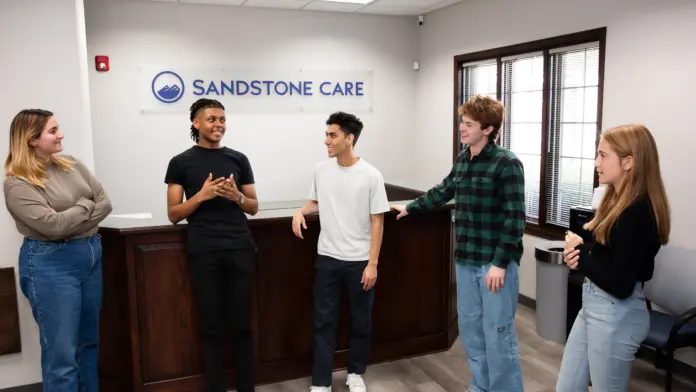
|
Waukegan, Illinois | Transitional housing provides a safe and supportive substance-free environment to those in need of a place to live. While living at this house, clients must remain sober and are asked to stay for a minimum of 45 days. Outpatient services at this location include group services and peer support that are guided by a licensed CADC counselor. Additio | Treatments Programs Payment Options | Great place
William Jackson
4 years ago
Excellent Agency and staff that truly does care!
Bernie Bohlman
5 years ago
Excellent way to start over
Lamar Wright
6 years ago
| 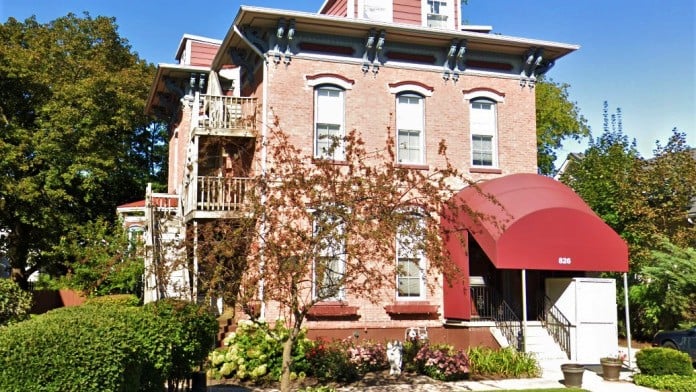
| |
Fox Lake, Illinois | Located in Fox Lake, Illinois, Mathers Recovery is an outpatient addiction treatment facility for adults. They are federally licensed to provide evidence based treatments such as outpatient detoxification, methadone maintenance and medication assisted treatment. The staff members are also trained to treat special populations such as older clients, | Treatments Programs Payment Options | I've been back there a couple times and it's a really wonderful place they have the willingness to work with you and help you where you're at in life blessings!🫶🙏🌻
Lisa Fay
2 weeks ago
Mather's Recovery has been the best place I have been to concerning my OUD and other mental health diagnoses. I am a recovering IV heroin addict for 10 years. My sobriety began 8/5/2021. I was at several MAT clinics to be prescribed methadone that I ended up abusing alongside heroin to supplement my habit for those 10 years. I had a very rough decade as I am sure many of us have while using. I overdosed more times than I could count and was in and out of jail for drugs and theft. I finally got sick and tired of using especially when fentanyl hit the streets along with unknown substances being passed off as heroin. I began detoxing for 6 months to get off of methadone and switch to suboxone which I did albeit I went into PAWS for using fentanyl before my first strip. This was before Mather's at my PCP's office more than 50 miles away. My PCP was extremely cold, impatient and quick to invalidate my feelings and experiences. That's when my wife found Mather's Recovery in Fox Lake. From the moment I walked in I had felt seen. The front desk women are so incredibly kind! It also doesn't look like your typical "clinic " which feels really good. I don't have to worry about hearing people talk about using still or offering me their take homes/drugs. Lorin was assigned to me and she is hands down the most down to earth, genuine person I have ever met during this journey. She makes me feel seen, validated and treats me like an actual human being. I switched from Suboxone to Brixadi and it was the best thing I have done for my sobriety so far. The nurses are so funny and I always leave feeling like I just visited caring friends. Lorin also listened to my struggles with mental health and did not hesitate prescribing me medication that other doctors did not trust me with even though I was sober and those meds were so necessary for my continued stability. I did not have to feel like I had to keep my struggles a secret out of fear of looking like a drug seeker. I have also been struggling with my severe unmanaged ADHD that was proving to be a huge obstacle in my life. Lorin heard my story and changed my life. I have been able to manage my symptoms and get a grip on life which once proved to once be an impossible task. It changed the way my employers and coworkers treat me. Most importantly it saved my 15 year relationship with my wife. I was on the brink of a separation with her. Now she and I have been more understanding of each other and slowly growing closer again. This is my testimony of how Mather's Recovery helped me regain control of my life. I couldn't be more thankful for everyone there. I hope someone reads this and decides to give this wonderful place a chance.
Lonnie
Lonnie Smith
3 weeks ago
My visit was very pleasant
MP K
3 weeks ago
| ||
Racine, Wisconsin | Ascension All Saints Hospital’s Spring Street Campus, which is located in Racine, Wisconsin, provides 24/7 emergency healthcare to patients in need. This facility serves as an addiction treatment facility since they can provide immediate detox services but they do not provide further help with substance use disorders. This faith based facility a | Treatments Programs Payment Options | I assume this is for the physical therapy I received. I only gave 4 stars because I would have preferred having the same therapist for my appointments….for continuity of care.
Wendy Csik
4 weeks ago
Any and everyone there were very kind and intended to every need I needed. I believe they went above and beyond what they needed to do. I would recommend to anyone that wants to be taken care of correctly to go there. Hats off to the whole team.
william schultz
1 month ago
I have spent many moments and required much care in various Hospitals. I quite honestly never experienced such a wonderful Medical care service with Dynamic Social environment as I recently have with Ascension All Saints Hospital at Racine Wisconsin.
Being toted Into The E R at first by Local Paramedic, Fire Rescue from 911 call by Me for Help was of course associated with stress and concern which was quickly addresses by the E R Team.
Once all of the tests and blood work had been accomplished, I was admitted As a Patient.
Within the Next following Three. Days, I was cared for and medically treated in such professional and concerning manner that I felt the confidence and secure care that was going to help Me achieve a healthy recovery from My Heart Failure.
The. Cardiac Care I received was profoundly second to none!
The entire nursing Staff I found to be very Professional, et Personal to be able to be in medical concern that resolve to My Health difficulties was going to be found before I go home.
No one particular nurse was better than another. Each and every Nursing Staff Member And supervisory individual was always on their job professionally to cover each necessity as needed with fluid response.
The food which was provided for Me to have in a healthy diet was delicious, very fulfilling and easily approved According to My health needs.
In the entire analysis of My experience here at Ascension All Saints Hospital was incredible and without question, the best care I have ever experienced in any Hospital anywhere. Thank You! Lindsey Wadsworth
Dr. Lindsey Wadsworth
1 month ago
| 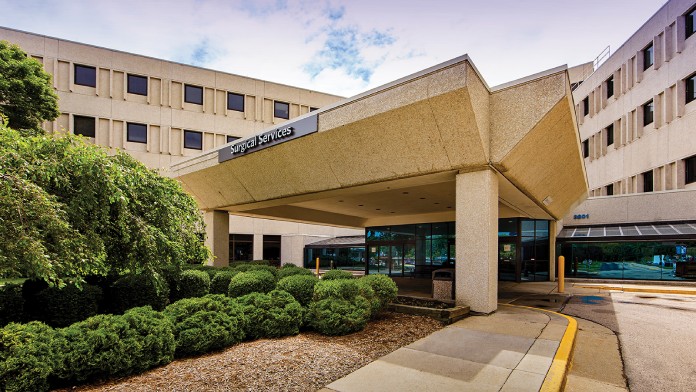
| |
Waukegan, Illinois | Nicasa Behavioral Health Services in Waukegan, Illinois, is a social service and behavioral health agency. The organization has been an operation since 1966, providing substance abuse education, prevention and treatment services. I like that the facility provides these services in both English and Spanish. In addition to substance abuse treatment f | Treatments Programs Payment Options | Nicasa Behavioral Health Services
2.4
(18)Waukegan
Yolanda Mccray
4 months ago
Nicasa is a very good place to be and having respect for the staff and it's subordinates goes a long way. I really appreciate the Dr. She took the time to listen to what I had to say pertaining to the services that lead me there. She along with other staff were very helpful, informative, and over all genuine. I came in a little upset and I left happy because the level of professionalism and respect I received was 5 star worthy. MR JB
MR None of Googles creepy ass business
9 months ago
Under the circumstances this place was great , really worked with me to get me done with the class A.S.AP and Ferlando was very informative of what to expect during and after the program .
Alan Nowakowski
4 years ago
| 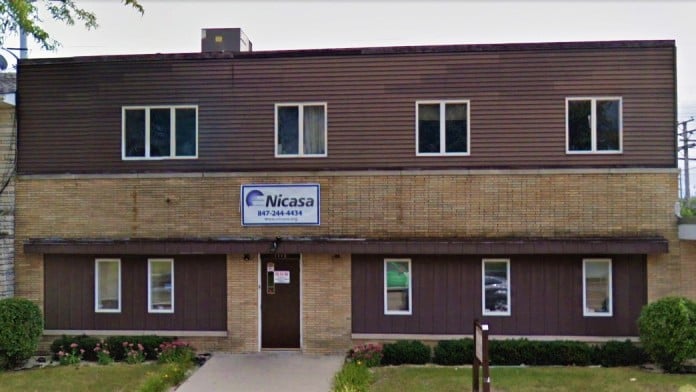
2 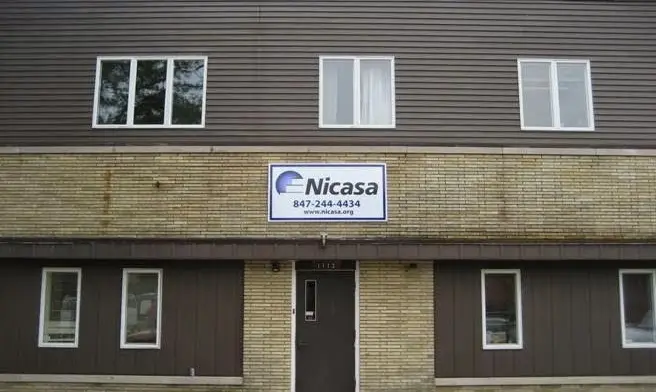
|

Kenosha is the 214th most expensive city nationwide for addiction treatment affordability, with an average cost of addiction treatment of $55392. This is comparable to the average cost of $56625 for addiction treatment in Wisconsin and comparable to the national average cost for drug rehab of $57,193.
The costs of drug and alcohol rehab in Kenosha vary widely and depend on several factors, including:
The costs of addiction treatment listed for cities and states are averages based on the cost of medical detox, inpatient rehab, outpatient rehab, and medication assisted treatment. These averages are high due to the cost of medical detoxification and residential inpatient rehab programs.
These numbers also reflect the raw cost of drug rehab, before any insurance coverage. The typical individual seeking addiction treatment can expect to pay much less for outpatient or intensive outpatient services than the averages listed below.There are many ways to pay for drug rehab in Kenosha. Most rehab treatment centers accept cash or self-payment, as well as private health insurance. However, there are many treatment centers in Kenosha that accept Medicaid and Medicare, or offer sliding scale payments or other low-cost payment options. Here's the complete breakdown of how to pay for addiction treatment near Kenosha.
Aetna is the most widely-accepted insurance for drug rehabs in Kenosha, with 4 treatment centers in the city accepting their insurance. UnitedHealth Group is the 2nd most popular with 4 treatment centers accepting it followed by Cigna in 3rd accepted by 3 drug rehabs.
Kenosha has the 35th highest rate of drug use nationwide among nearly 400 cities surveyed. This number reflects the combined use of cocaine, heroin, meth, and marijuana, displayed individually below. The percent shown for each drug represents the number of residents in Kenosha county that have reported ever using the following drugs, so these numbers should not be interpreted as direct evidence of current drug use in Kenosha or Kenosha county as a whole.
In 2023, Kenosha had the 121st highest number narcotics violations out of 330 cities nationwide, with a total of 596 reported drug-related incidents that year. This includes cases of public intoxication, drug arrests, narcotics found during house calls and traffic stops, and any other drug-related crime.
Keep in mind these numbers are dependent on accurate record keeping and reporting laws by local police and sheriffs, and may not fully reflect all drug related crime in Kenosha.All values are per 100,000 population.
Source: https://cde.ucr.cjis.gov/LATEST/webapp/#/pages/explorer/crime/crime-trend